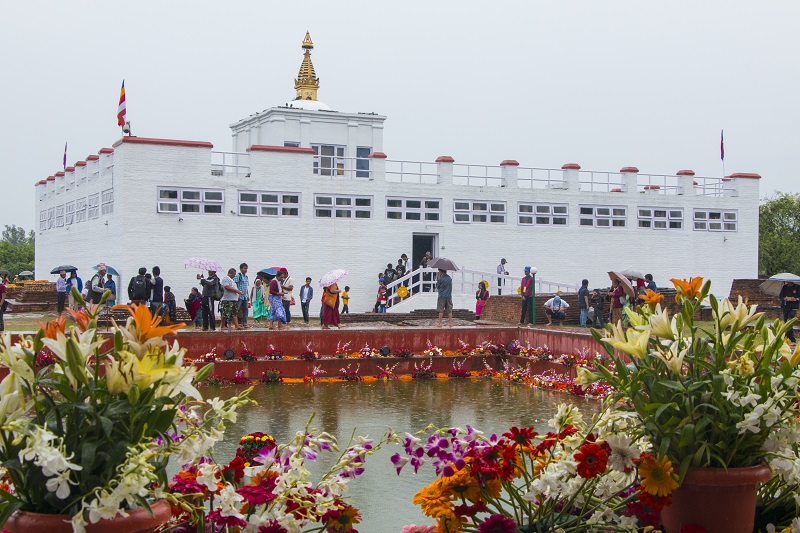

In a bid to strengthen the systems of local levels in the evolving context of federalism and enhance public service delivery from the doorstep governments, the Province Training Academy has stepped up follow-up and monitoring of its programmes in the Lumbini Province.
The Academy, also serving as the Provincial Centre for Good Governance (PCGG), recently concluded its onsite follow-up and monitoring in 15 local governments of the Province where different capacity building activities and programmes are being implemented with the support from Provincial and Local Government Support Programme (PLGSP) – a flagship initiative of Nepal government for promoting good governance.
A monitoring team comprising experts of local governance, gender and social inclusion, monitoring and evaluation and curriculum development of the Academy undertook the field-based interactions and follow-up in five districts, Dang, Rolpa, Pyuthan, Arghakhachi and Kapilbastu. “The team had intensive discussions with the stakeholders, including elected people’s representatives and government officials, of the local levels about the future interventions of the Academy in enhancing their performance,” said Bishnu Neupane, Curriculum Development Expert of the Academy.
Academy’s Executive Director Moti Prasad Sharma told RSS that the Academy has so far developed 22 different capacity development plans and 13 periodic plans, undertook 51 GESI Audit of the local governments on the basis of need analysis, and also designed and delivered dozens of short-term capacity enhancement training in the Lumbini province after it came into operations in this fiscal year.
“The Academy is currently focusing on its efforts in developing further capacity of the elected representatives, staffs of province and local governments, its subordinate bodies as well as public enterprises, strengthening systems of the local governments to implement the existing laws and provide public services, facilitating development of periodic plan, service delivery improvement plan, revenue improvement and economic empowerment plans”, Sharma said.
He further shared, “We have recently completed the performance evaluation of the local levels on 100 indicators in different 10 key areas adopting the spider web methods. It helps trace the status of the local level in different dimensions of governance and development and also lays the ground for devising their prospective plans with vision, mission, goal, objectives and interventions.”
He linked the recent field-based monitoring as part of their plan to improve quality delivery of local levels and also seek their feedback on future course of action of the Academy.
In the interaction, Bhakta Bahadhur Oli, Chairperson of Bangalachuli Rural Municipality, Dang, highlighted the crucial role of the training to local government officials and local representatives in managing and delivering services. The team had also observed GESI mainstreaming in the local planning process.
Chairperson of Madi Rural Municipality of Rolpa, Nanda Bahadhur Pun, said they had contributed enough to bring about political change in the country but now it is a challenge to develop human resources to better serve the people with needed skills.
Likewise, in an interaction with Sandhikharka Municipality of Arghakhachi Deputy Mayor Thakur Kumar BK and Chief Administrative Officer Narayan Aryal spoke the need of capacity building of staffs and representatives and also expressed their interest to collaborate with training academy for further capacity development activities in the days to come.
Laxmi Gautam, Vice-Chairperson of Panini Rural Municipality of Arghakahchi emphasized enhancing competence of the local levels in a systematic manner so that they can effectively tailor different plans and implement them for the welfare of the people.
Likewise, Chief Executive Officer of Maharajgunj Municipality, Kapilbastu, Bed Prasad Kharel demanded training on the demarcation of rights and authorities between the elected representatives and government staffs at local levels so as to create harmony between the two important actors of the local government and enhance the effectiveness of public service delivery.
Academy’s Curriculum Development Expert Neupane shared that the monitoring visit was really insightful to observe best practices and challenges in their performances as well as expectations from the provincial center for good governance. It was observed that the previously-delivered training has been useful for the local levels in enhancing their service delivery even during the complicated times of the pandemic, Neupane shared.